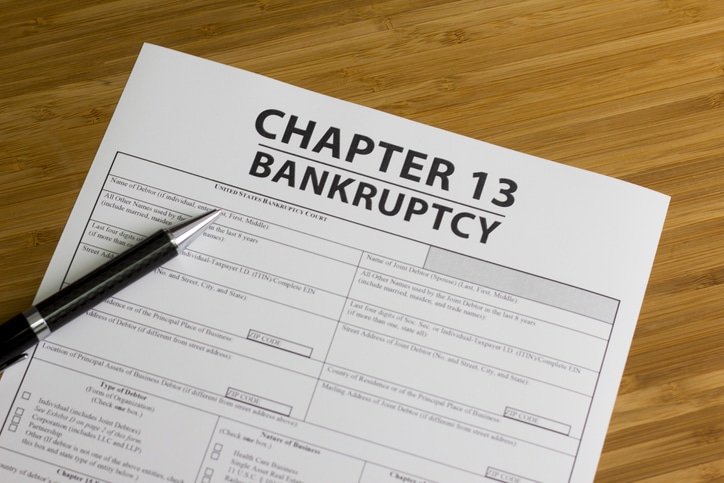How the Drought in Nevada May Be Affecting Your Pocket

In 2021, Southern Nevada and Clark County experienced one of the worst drought periods on record. Unfortunately, this year has been just as bad, with exceptional or extreme drought conditions in Clark County since early May. As you can imagine, the continued Nevada historic drought conditions are having effects on businesses and residents alike.
How is the Nevada drought affecting businesses?
According to the Southern Nevada Water Authority (SNWA), 60% of all water used in Southern Nevada is used outdoors. Most of that water evaporates before it can be reclaimed and returned to Lake Mead. As a result, many businesses have had to cut back on water usage in outdoor areas.
Some businesses, like the Anthem Country Club, have temporarily shut down to help conserve water. In July, the country club shut down part of its golf course to renovate and replace existing grass with a more sustainable and less water-demanding turf.
However, when the SNWA released new regulations limiting golf courses to only four acre-feet of water use per year, the country club shut down the entire golf course. To give you an idea of how much water that is, one acre-foot of water is approximately 326,000 gallons.
So under the new regulations, golf courses would be limited to no more than 1,304,000 gallons of water per year. If drought conditions persist, the SNWA could continue reducing the amount of water that golf courses have available.
Basic Water Company, which used to be Las Vegas and Henderson’s primary water provider, now serves four industrial clients. With the drought, the water levels at Lake Mead have dropped too low for Basic Water Company to obtain water.
Due to their inability to service their customers with water from Lake Mead, they filed for Chapter 11 bankruptcy protection with a Nevada bankruptcy attorney.
Over on the Vegas Strip, resorts and casinos have been tearing out grass and replacing it with drought-friendly landscaping and plants. Another concern for many resorts is keeping pool levels filled as the water quickly evaporates.
Should the drought persist into 2023 and beyond, water restrictions could affect how much water resorts are allocated for filling their pools. It is quite feasible that larger resort pools may have to be permanently closed.
Have concerns over how the drought is affecting your business? Contact a Nevada Chapter 11 bankruptcy attorney today.
What business industries are being affected by the drought?
The extent of the business industries being affected by the drought is much bigger than golf courses and resorts on the Strip. As of August 21, 2022, Lake Mead was only 28 percent full, according to the Bureau of Reclamation.
Part of the problem is the annual snow runoff into the Colorado River Basin, which continues to decline. With drought conditions, the soil becomes so dried out that much of the runoff is re-saturating the ground before reaching Lake Mead.
The water level at Lake Mead recently dropped below 1,050 feet, so pumping station one had to be shut down. Pumping station two can continue pumping water from Lake Mead until it drops below 1,000 feet.
At that point, pumping station three will continue operating until water levels drop below 875 feet. However, once water levels drop below 895, the Hoover Dam will no longer be able to make power since it will not be able to release water downstream to California and Arizona.
Any business that primarily relies on water could face difficulties in the coming years, such as farmers, beverage manufacturers, car washes, textile and garment production, automobile manufacturers, and meat processing. According to the Water Resources Group, industrial water demand is anticipated to exceed supplies by 40% by 2030.
Unless steps are taken now to reduce and conserve water, many businesses could eventually have to file bankruptcy or possibly go out of business entirely.
What is being done to fight the drought and keep the affected businesses operating?
The SNWA is taking steps to implement new initiatives to help conserve water. For example, they have a goal of cutting water usage to 86 gallons per capita day by 2035 for residential and business needs. In addition, the installation of grass is prohibited as well as watering grass using water from the Colorado River.
Furthermore, residential pool sizes for new construction are now limited to 600 square feet. The SNWA is also considering restrictions on installing evaporative cooling systems in new commercial and industrial properties.
In the case of Basic Water Company, they are continuing to make their water deliveries with assistance from the SNWA and the city of Henderson. Golf courses and country clubs will need to look at artificial and less water-demanding turf if they wish to remain operational year-round.
How can filing Chapter 11 bankruptcy help businesses dealing with the drought?
Filing for Chapter 11 bankruptcy with help from a Nevada bankruptcy attorney can bring much-needed relief for businesses struggling financially due to the drought. Chapter 11 allows a business to file a reorganization plan with the U.S. Bankruptcy Court.
The reorganization allows the business to continue to operate while making payments to its creditors. Part of the plan could include what changes the business needs to adjust its operations, compensate for the drought, and implement new water-conserving and saving measures.
If your business is being affected by the drought and you are concerned about remaining in business, consider speaking to a Nevada Chapter 11 bankruptcy attorney at DeLuca & Associates today.
Find out if bankruptcy is the best solution to your financial concerns. Schedule a free consultation with a Nevada bankruptcy attorney.
Sources:
What We’re Doing to Conserve. (2022).
Climate Change and Drought in Southern Nevada. (2022).
Which Industries Use the Most Water? (2019).
Chapter 11 Bankruptcy Basics.







